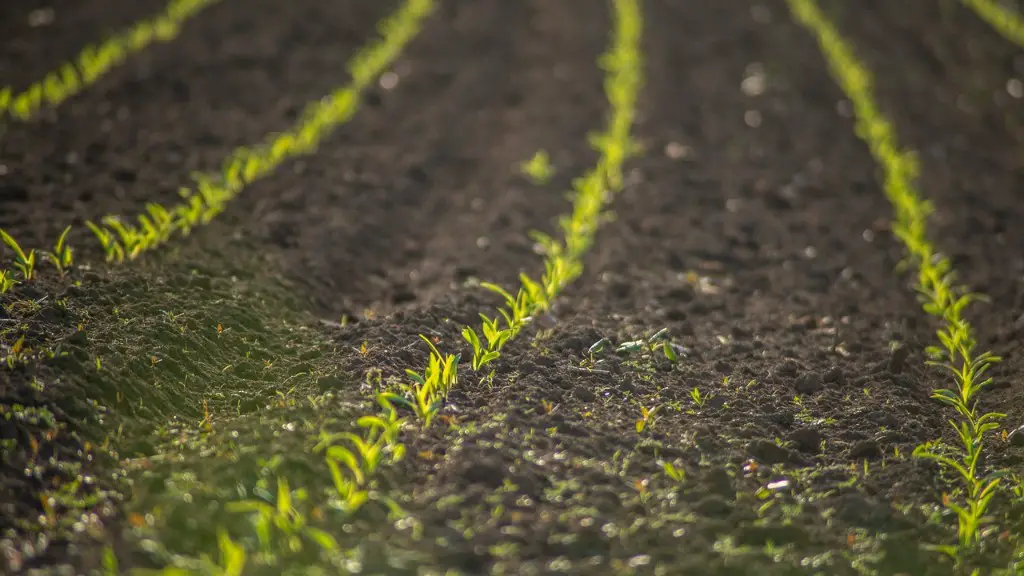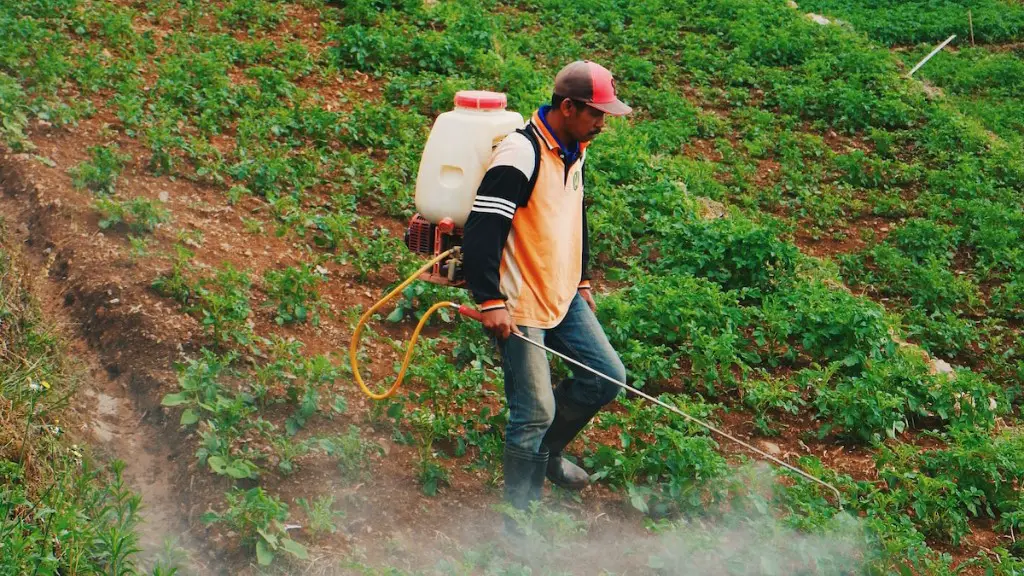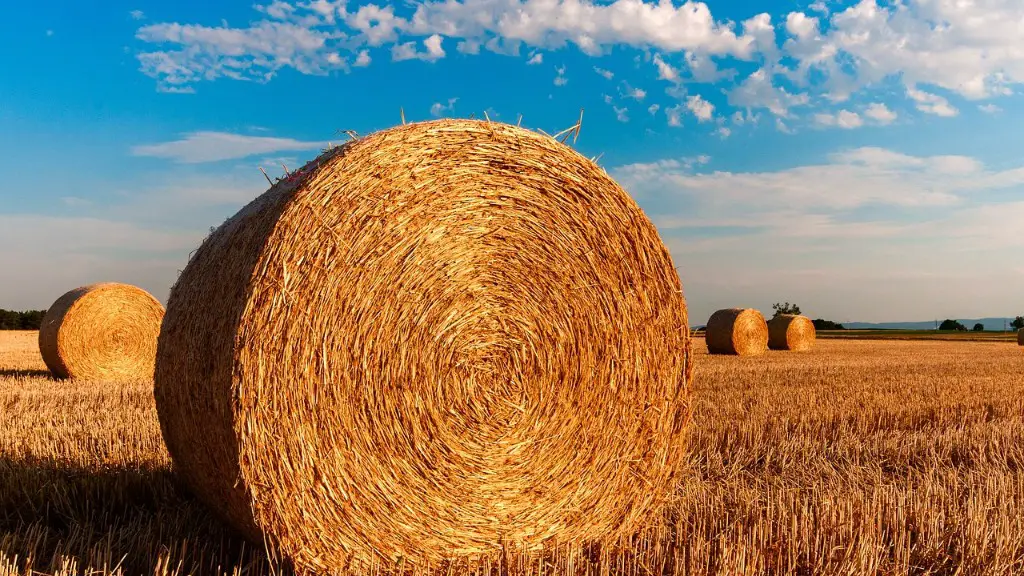Agriculture is a significant factor in human life and has had a considerable impact on human activity from ancient times to the present day. Evidence suggests that this shift from hunter-gatherer lifestyle to agrarian societies was first observed around 10,000-11,000 BC in different parts of the world. Agricultural practices allow humans to manipulate surrounding environments and have enabled population growth by providing a consistent and reliable source of food. This shift has facilitated revolutions in economics, politics, social structures, warfare, and other aspects of human life.
Agricultural activities have brought many advantages to humanity, including a steady supply of food, increased population and decreased fear of starvation. As people settled in permanent locations and grew crops, they were able to develop and refine more efficient methods of crop rotation and soil maintenance, leading to increased yields and the formation of larger and more complex societies. This allowed for the growth of cities and trade networks.
The development of agriculture also had a notable effect on technology, as it created a need for more efficient tools for cultivation and harvesting. This led to advancements in metallurgy, irrigation, and other technologies that are still being used today. In addition, humans had more stability to develop a variety of arts, crafts, and writing, which laid the foundation for civilizations as we know them.
The development of agriculture has also fostered the growth of institutionalized government and religious organizations. One example is the fact that a large surplus of crops would lead to the emergence of economic systems, with merchants and the wealthy gaining more power. As cities grew, the power of kings and rulers intensified, leading to centralized governments. Religions based around the idea of fertility of the land began to emerge, and many of these remain today.
Agriculture has had a profound effect on the growth of human societies. Not only has it provided a stable source of food, it also led to the formation of larger populations and the development of complex social, political, and cultural systems. The development of agricultural technologies and practices has allowed for advancements in many areas of life that are still being felt today.
Impact on Human Health
The development of agriculture has had a tremendous impact on human health. Prior to the onset of agricultural practices, hunter-gather tribes had to frequently move around in order to find adequate sources of food, leading to a sedentary lifestyle and occasional food shortages. The introduction of agriculture allowed people to settle in one place, leading to the improved health of communities. Moreover, the consistent production of crops lead to improved diets and an overall higher quality of life.
Furthermore, the development of agriculture enabled humans to develop animal husbandry, with cows, sheep, and other livestock providing additional nutrition and food sources. This also facilitated the spread of infectious diseases as these animals served as carriers for viruses and bacteria, although some of these diseases can be modified through the domestication of the animals. Nevertheless, agricultural practices introduced a variety of food sources to human diets.
Influence on Language and Culture
The development of agriculture had an immense influence on the growth of culture and language. As populations grew and settlements formed, people began to interact more often and develop distinct social systems, which in turn led to the emergence of unique languages. On a larger scale, the changes brought on by agriculture enabled unprecedented cultural and technological innovations as new ideas and inventions could be shared and spread more easily.
In particular, the domestication of animals and plants drastically changed the tools and resources available, allowing for the further refinement of language and cultures. Agriculture also provided a reliable source of food, freeing up time and resources for people to devote to culture and religious development.
Culturally, the development of agriculture allowed for a wide variety of religions and philosophical systems to emerge, including those associated with fertility and reverence for the land, as well as concepts of stratified societies. Creation stories, governance systems, and social norms were also shaped by this shift in the way people interacted with the world.
Effects on the Environment
The development of agriculture has had a profound effect on the environment. For instance, many ancient cultures practiced rotating crops, which helped to maintain the environment’s fertility by restoring and enriching soil. Deforestation and irrigation practices also increased with agriculture, as these activities allowed more surface area and water to be used for crop production.
Agricultural practice has also impacted the environment in other ways, such as waterway pollution, erosion, and the alteration of ecosystems. In some cases, the introduction of livestock and the use of chemicals can lead to dramatic changes in a local area. Examples of this can be found in areas where extensive olive farms have replaced natural water sources or ancient forests have been cleared to make way for new agricultural lands.
Finally, agriculture has been linked with certain climate changes, such as the increase of atmospheric carbon dioxide. This, in turn, can cause further negative impacts on the environment, such as hotter summers or rising sea levels.
Political and Economic Implications of Agriculture
The development of agriculture had enormous political and economic implications. As individual settlements grew and formed larger populations, kings and rulers began to emerge in order to centralize their power and control resources. As a result, some of the earliest forms of taxation were developed to support the centralized governments and their armies.
In terms of economics, the availability of resources and steady food supply enabled the emergence of trade networks and markets where goods and services could be sold. This allowed for the advancement of technologies and refinement of existing methods, such as the invention of money and tools for economic transactions, eventually leading to the modern economic system.
Additionally, the emergence of organized religion and social hierarchy further bolstered the power of rulers and governments. This provided a unified system of law and order in the form of early political organizations.
Global Impact of Agriculture
Overall, the development of agriculture has had a marked influence on societies around the world. In particular, the emergence of agrarian societies and the concomitant population growth has had a profound effect on human life. Additionally, the emergence of political systems and religious organizations, as well as the growth of economies, technological advancements, and linguistic developments are all rooted in the shift from hunter-gatherer societies to agriculturally-based ones.
Today, agriculture remains a cornerstone of human life, with the consequences of its development still being felt around the world. In the modern era, agricultural practices are evolving with new technologic and scientific innovations, creating a more efficient and sustainable means of food production. Nonetheless, the impact of agriculture on the modern world is palpable, and its origins can clearly be traced back to the dawn of civilization.
Contemporary Challenges
Despite its obvious advancements, the emergence and proliferation of agriculture has also been accompanied by a variety of challenges. These difficulties include the widespread usage of chemical pesticides and fertilizers, which can both lead to health and environmental problems. Additionally, agricultural activities can displace native species and contribute to habitat loss, as well as competition for natural resources.
In the modern era, the development of agricultural practices is further hampered by a variety of factors, including urbanization, the degradation of lands, and the growing demand for food. To mitigate these difficulties, more sustainable and efficient practices are needed, in addition to increased global cooperation to address food security and environmental sustainability on a larger scale.
Future of Agriculture
Overall, the future of agriculture is uncertain, although promising prospects exist. On the one hand, new technologies and practices can enable more efficient crop production, leading to greater yields and lower associated costs. This can enable food to reach more people in need, as well as providing a greater variety of food sources.
On the other hand, new developments in agriculture will also come with potential risks. For instance, the increased reliance on technological or chemical innovations carries the potential for unforeseen consequences, such as resistance to chemicals and disease, as well as greater pollution.
Ultimately, the development of agriculture has had a major impact on the world, and its consequences continue to shape human life today. Going forward, a greater understanding of agricultural methods, increased global cooperation, and sustainable practices are all needed in order to address the various challenges that the industry continues to face.





